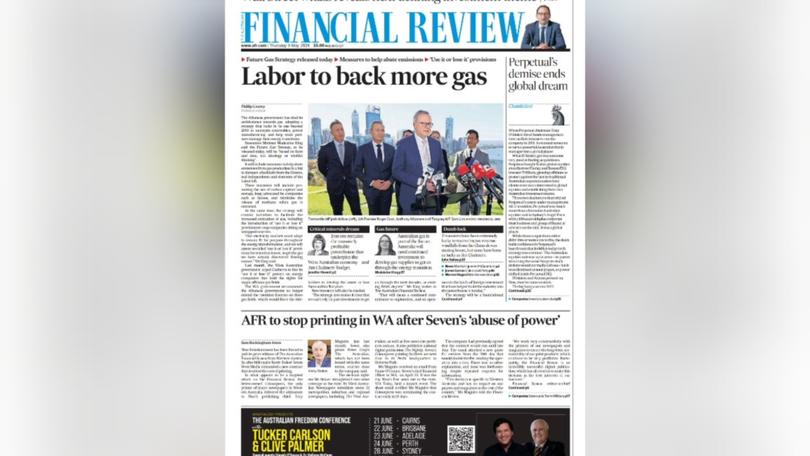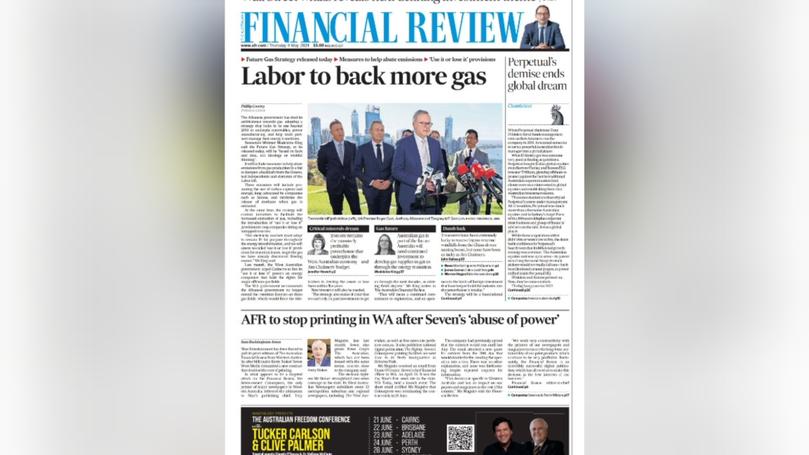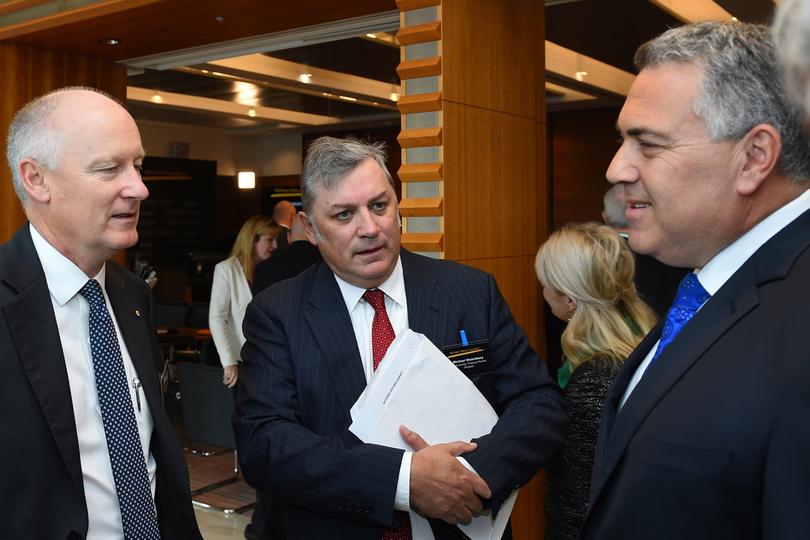Nine cries foul but refuses to pay $3000 to stay in WA
Nine will stop selling the Australian Financial Review in WA because it refused to pay as little as $3000 extra a day to print the financial sheet in Perth.

Nine will stop selling the Australian Financial Review in WA because it refused to pay as little as $3000 extra a day to print the financial sheet in Perth.
Executives at the Sydney-based media giant are using its “independent always” financial journalists to prosecute the narrative that Seven West Media has “forced” Nine to stop selling the AFR by “demanding” a price rise to print the dwindling tabloid six days a week.
In reality, Nine Entertainment, a media business with a market cap of $2.4 billion, refused to enter negotiations with Seven West Media, which has a market cap of $300 million, over the increasing cost of printing.
Sign up to The Nightly's newsletters.
Get the first look at the digital newspaper, curated daily stories and breaking headlines delivered to your inbox.
By continuing you agree to our Terms and Privacy Policy.Rather than being “forced” to pull the AFR out of WA, Nine in fact chose not to pay one cent extra for printing barely more than 2000 copies of the finance paper a day.
The paper has a cover price of $5. The cost charged to Nine for printing the AFR is a fraction of the cover price. The AFR also only employs two journalists in Perth.
News Corporation prints Nine’s newspapers in other parts of Australia. Industry sources outside of WA claim the AFR would be printing fewer than 23,000 weekday copies nationwide, and 10 per cent of those are for the WA market.

Industry estimates suggest the cost of printing would be less than $1.50 a paper, which would indicate that a doubling of the price would be about $3000 extra a day.
The respected editor-in-chief of the AFR, Michael Stutchbury, was at the centre of the hysteria, doing media appearances on Nine-owned TV and radio, and spots on the ABC, as well as telling subscribers he was in a battle with a “billionaire Perth media mogul”.
Stutchbury revealed that “the great bulk of our readers and subscribers are digital” but “print still plays a special role”. The price rise would send the AFR “into a loss in WA”.
Stutchbury, an economic rationalist, seems to be making the case that Seven West Media should be subsidising the printing of Nine’s flagship — and very profitable — national newspaper.
Perhaps, as other media companies frequently do, the profitable arm of the AFR, its digital operation, could instead subsidise the less profitable parts of the business, such as the printed editions in WA.
It’s unclear why Seven West Media should be doing that for them.

The irony is the AFR’s many feral columnists, in their very personal and nasty campaign against Kerry Stokes, frequently advises that Seven West Media, of which he is the chair, should make better business decisions.
Rather than be open and honest with its readers and the business and political community in WA about the failings of its own operation in the state, Nine appears to be more than happy to cut its losses.
Shame none of them told the AFR’s leadership how quietly chuffed they are to be out of print. If as industry sources suggest the AFR is in fact selling about 2000 copies a day at $5 a pop, it’s no surprise why.
What’s just as surprising is the AFR leaning on teal independents from Sydney and Melbourne and the naive Kate Chaney to lead the outrage about the loss of 2000 newspapers a day in Perth.
And how is it an abuse of market power, as they rage, if as, Stutchbury admits, most of their readers and subscribers access their content digitally?
